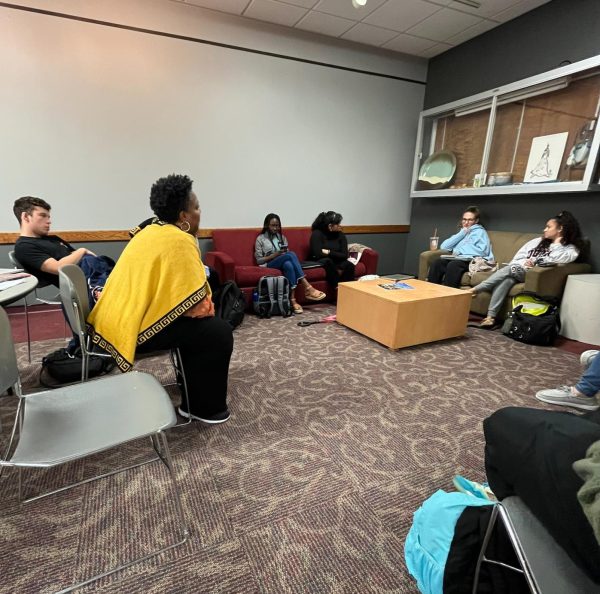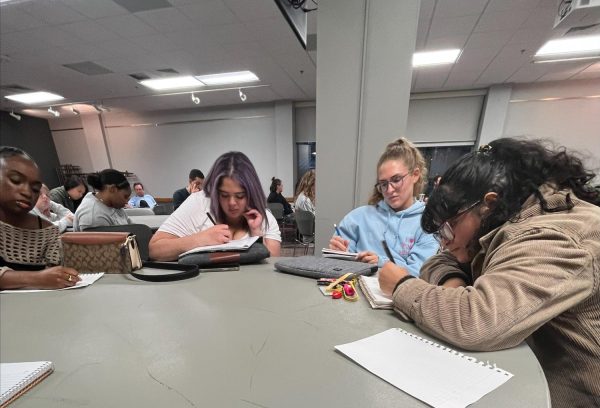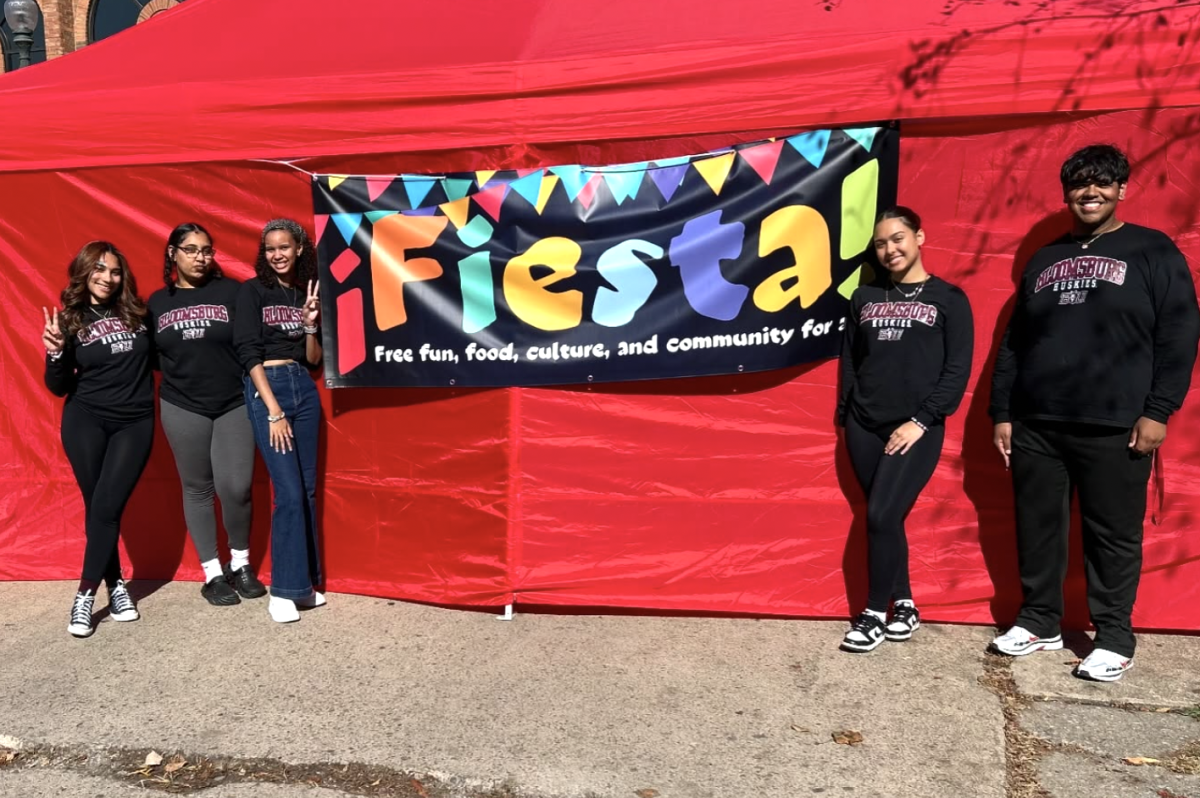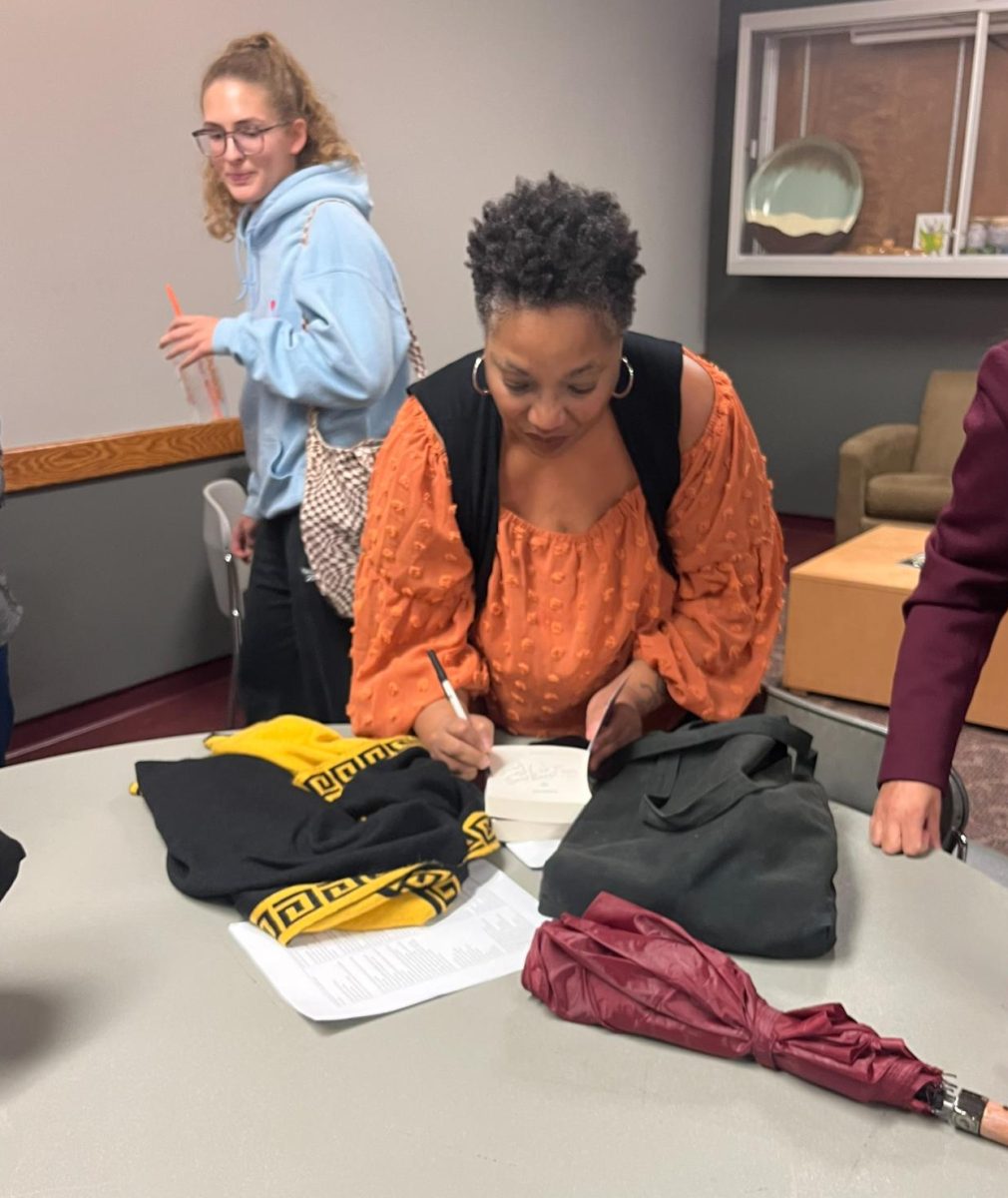Author, Yolanda Arroyo Pizzaro, founder and chair of Ancestral Black Women (UNESCO International Decade for People of African Descent), spoke in the Multicultural Center at the Bloomsburg University campus on Tuesday, September 26 at 6:30 p.m. thanks to Dr. Amarilis Hidalgo- DeJesus, a Spanish professor at Bloomsburg University.
Arroyo Pizzaro originally met Hidalgo-DeJesus at a conference in Puerto Rico, where was she moved by her informative lecture because of her strong display of conveying different subjects.” It will open the eyes to people about the colonial process of the Caribbean and the impact of the slavery trade in our nations/culture.”, said Dr. Hidalgo-DeJesus.
Hidalgo- DeJesus initially applied for a grant to curate this guest speaker event, this grant would take care of many amenities for the writer to arrive. Upon approval, the $2,600 grant was set forth. The event is sponsored by the Diversion, Equity, and Inclusion Grant Award, the Multicultural Center, the Student Organization of Latinos, the Women’s Resource Center, and the Department of Languages & Cultures.
Yolanda Arroyo Pizarro is a Puerto Rican writer known for promoting conversation on Afro-Caribbean history, literature, and sexual identity. According to Dr. Hidalgo-DeJesus, “She was the first member of the LGBTQ community in Puerto Rico to have a civil marriage in the island.”
Maeyelyn Acevedo, a Spanish Secondary Education student and executive member of the Student Organization of Latinos, assisted in the organization of the event and introduction of the author within her work for the Multicultural Center. “As someone who also uses poetry as a form of expression, attending her lecture and reading her work inspired me to start writing again and searching for avenues to share my work.”, said Acevedo.
Group discussion with class
During the 5:00 p.m. Caribbean culture class, the students met with the author and Spanish professor in the Multicultural Center for a group discussion. The group sat in a circle as they discussed one of her most famous books, “Negras”. Within the story from “Negras”, black women took part in thousands of individual and group escapes during slavery and post-slavery. The author emphasized, “There are a lot of types of feminism, but [also] a lot of sexism in society.”

Different class members joined in asking questions and comparing views with the strong encouragement from their professor. “I like the look on your faces”, said Yolanda Arroyo Pizarro peering at the expression on her small audience’s faces as they bantered.
The author emphasizes tales of what happened during slavery and post-slavery through her stories, with fictional language and symbolism. Enslaved Africans were brought to the Caribbean as an abundant and cheap source of labor for sugar plantations. Those engaged in the slave trade were primarily driven by the huge profits to be gained, both in the Caribbean and at home. During the Dr. Hidalgo-DeJesus’s class, everyone asked a question to the author grasping a stronger understanding of her literature to society.
Marie-Josée Creppy, a dual Spanish and Anthropology senior, admired the author’s one poem regarding “big lips, inspired by an old memory from her school days. “She took something personal and ugly, then turned it into beautiful literature.”
A Compelling Lecture
A full audience made up the majority of the Multicultural Center room, ready to learn from the fiery Yolanda Arroyo Pizarro. The author began the lecture sharing a few of her short stories in English starting with the introduction pages in “Negras” which she wrote in 2003. She was inspired to write through the feelings of sadness and loss, which is her way of “healing through the arts”.
“My mom and my dad, who were also my grandma and grandpa, who died within the same week and loved each other very much.”, shared Yolanda Arroyo Pizarro. Her grandmother’s stories serve as a guiding point for her writings, along with Afro-Caribbean history. Jotting down poetry and other writings is a favorite activity of hers as it guides her to stay in tune with her emotions, and she encourages everyone to do the same.
Throughout the lecture, the author engaged in various writing and thinking activities with the listeners. She touched on the affect of their own grandmothers and mothers on their lives, and instructed a poetry activity. She shared that sometimes people feel so lost from not being in touch with their roots. To conclude, a number of students were able to ask her various questions about her life, writings, and other categories which she happily answered.























